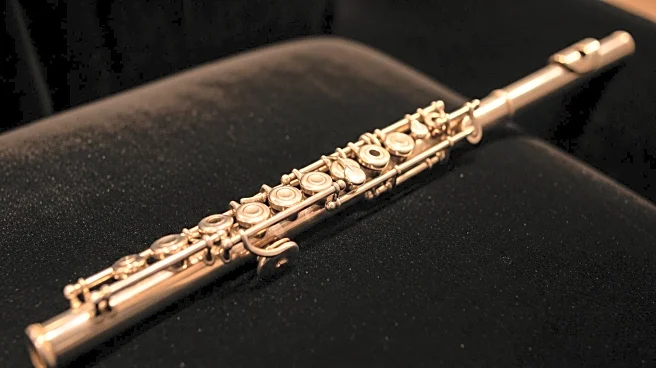What's Happening?
The Chicago Symphony Orchestra (CSO) hosted a dynamic debut under the direction of conductor Daniela Candillari, featuring a varied program that included Samuel Barber's Adagio for Strings and Giovanni Battista Pergolesi's 'Stabat Mater.' The program also introduced two new works: Carlos Simon's 'Fate Now Conquers' and Thea Musgrave's 'Piccolo Play,' showcasing the piccolo as a solo instrument. This performance marks a shift in CSO's programming strategy to include more contemporary works and living composers, reflecting a broader trend in classical music to diversify and modernize its offerings.
Why It's Important?
The inclusion of contemporary works in the CSO's program is significant as it represents a shift towards embracing modern compositions and living composers, potentially attracting a wider audience and revitalizing interest in classical music. This approach may help bridge the gap between traditional classical music enthusiasts and newer generations seeking innovative and diverse musical experiences. The focus on the piccolo, often overlooked in orchestration, highlights the versatility and potential of smaller instruments in classical music, offering musicians new opportunities for solo performances.
What's Next?
The CSO's pivot towards contemporary music is expected to continue, with plans to include more new works in future programs. This strategy may lead to collaborations with emerging composers and musicians, fostering innovation and creativity within the orchestra. Audience reactions to these changes will be closely monitored, potentially influencing future programming decisions. The success of this debut could encourage other orchestras to adopt similar approaches, contributing to a broader evolution in the classical music landscape.









